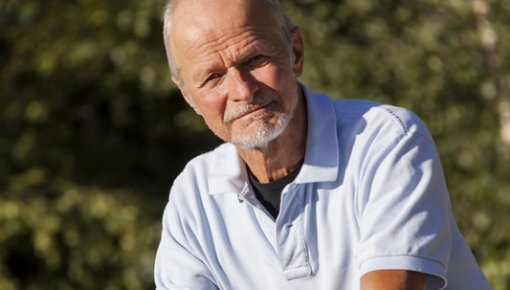I could feel a kind of pressure while cycling
Then, after a while, I noticed that I was having more and more difficulties urinating. It just didn't really work properly anymore. It took longer to finish, and I had to wait a bit before it would get going. The problems got worse over time. I had to get up to go to the toilet several times a night. Sometimes I felt like I had to go, but then nothing came out. It seemed like I was spending all of my time on the toilet. I would squeeze out three or four drops. But that got better again. I cycle a lot, and started being aware of my enlarged prostate when I sat on my bike. I could feel a kind of pressure.
In spring this year, my PSA levels were very high again. My family doctor referred me to the urologist again, and he referred me to the urology department of a hospital. They did another biopsy. This was an outpatient procedure, and apparently people can usually go home after two to three hours.
It took a little longer in my case. I could no longer pass water properly after the biopsy – I had urinary retention. There was a lot of pressure on my bladder and it was very painful. They kept me in hospital and gave me a catheter. When things didn't get better and I couldn't pass water without the catheter, they recommended that I have an operation. I had the choice between that or a permanent catheter.

